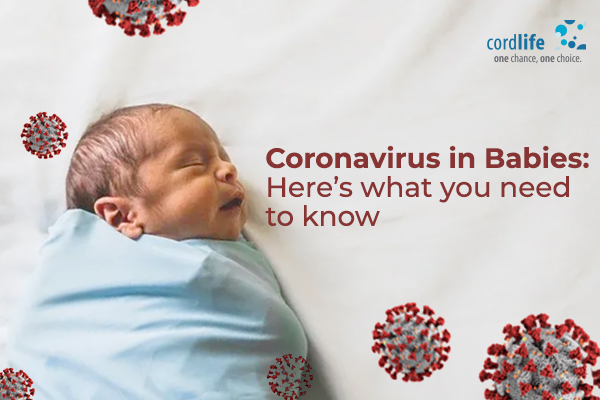Table of Contents
Parents worry – it’s just part of the job. Whether you’re a first-time parent, one with adult children, or even one with grandchildren, you’re constantly worrying. So, it is only natural that the coronavirus pandemic has added one more fear to your list – could it affect your little one? While research about the impact of COVID-19 on babies and children is still underway, there are some precautions you can take to make sure your baby is safe.
How Can You Identify Coronavirus in Babies?
The symptoms in babies are mainly similar to those in adults, albeit slightly milder. These can include fever, runny nose, sneezing, and gastrointestinal issues like diarrhea. Symptoms are likely to materialize about a day or two after being exposed, but it’s possible for some babies not to show any symptoms. How would you know then? Unfortunately, you wouldn’t unless a family member tests positive, requiring your baby to be tested too.
Do You Need To Be Worried About Your Baby Catching The Virus?
You’ll be happy to know that fewer babies and children are getting sick from the virus, and if they do, they do better than most adults. However, infants below the age of 1 are more likely to fall critically ill.
It has been noted in a published study that out of 2,100 children who tested positive in China, about 4% had no symptoms. 51% had mild symptoms, and 39% had moderate symptoms. Only 6% had a severe attack. Of these, most were infants. Despite studies, researchers haven’t concluded why children are more likely to have milder symptoms when compared to adults. Some have credited it with higher levels of antibodies or different immune responses.
Can Babies Pass The Virus On To Others?
The virus is mainly known to spread via respiratory droplets that get into the air when an infected person sneezes or coughs. With that said, babies and young children can spread COVID-19 in the same way.
Can Babies Contract the Virus From Their Infected Mother?
While research is still on, it has been noted that transmission between an infected mother and her unborn child is very unlikely.
Can Babies and Children Get The Vaccine?
While most people worldwide are racing to get their jab, the approved vaccines are only limited to adult use. It will likely be many months before any vaccine can be administered to young children.
It’s normal if you still feel helpless against the virus. However, parents or not, most people are in the same boat. The only way you can keep yourself, and your baby safe during the pandemic is by following these steps:
Always Wash Your Hands
Remember, wash up for 20 seconds with soap and water, or use a hand sanitizer if you can’t get to a washroom.
Social Distancing
If you have to step out, keep your child at home with a healthy caregiver to avoid them coming into contact with anyone.
Mask Up in Public
Wear two masks – a cloth mask over a surgical mask for maximum protection. Do note that children under 2 have been advised to avoid wearing a mask due to suffocation concerns.
While there’s nothing that can calm a worrying parent, make sure you follow these guidelines to lower the risk of the virus hitting too close to home.
